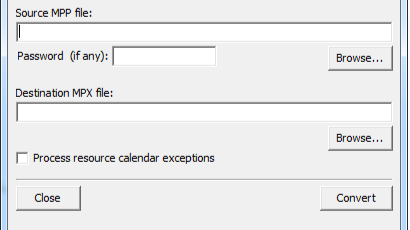Quantitative Risk Scoring (QRS) in Project Management

Quantitative Risk Scoring (QRS) in Project Management Introduction : In the landscape of project management—particularly in large, complex, or high-stakes programs—risk is not just a variable; it’s a certainty. While qualitative techniques help in identifying and classifying risks, Quantitative Risk Scoring (QRS) transforms risk analysis into an empirical, measurable process. QRS is not a buzzword—it’s […]
Why Earned Value Management (EVM) is Still One of the Best Project Control Techniques

Why Earned Value Management (EVM) is Still One of the Best Project Control Techniques Introduction: The Need for Data-Driven Project Control In complex projects—construction, aerospace, defense, IT, and infrastructure—cost overruns and schedule delays are common risks. Traditional budget tracking and schedule reporting often fail because they only measure what has been spent and what has […]
Project Management vs. Project Control Management: Understanding the Key Differences and the Role of Planning & Scheduling

Project Management vs. Project Control Management: Understanding the Key Differences and the Role of Planning & Scheduling Introduction : In the world of project execution, two essential disciplines often come into play: Project Management (PM) and Project Control Management (PCM). While closely related, they serve distinct functions and require different skill sets. Both disciplines are […]
A Comprehensive Guide to Project Management Contracts: Public, Private, and FIDIC Agreements

A Comprehensive Guide to Project Management Contracts: Public, Private, and FIDIC Agreements Introduction : In project management, selecting the right contract type is a critical decision that impacts risk allocation, financial stability, project execution, and legal responsibilities. Whether managing a public or private project, national or international, understanding different contract structures is essential to ensuring […]
Comprehensive Guide to Constraints in Primavera P6: Types, Examples, and Best Practices

Comprehensive Guide to Constraints in Primavera P6: Types, Examples, and Best Practices Introduction : In project management, scheduling is a complex process that requires balancing logic-driven activity sequences with real-world constraints. In Oracle Primavera P6, constraints are used to impose specific rules on activity start and finish dates, ensuring that the project schedule aligns with […]
Why Retro-Planning is Not Recommended in Project Management

Why Retro-Planning is Not Recommended in Project Management Introduction : Retro-planning, or backward scheduling, is a project management approach where the project is planned in reverse from the deadline to the start date. While this technique may seem logical in cases with strict deadlines, it is generally not recommended due to its limitations in risk […]
Step-by-Step Method to Creating a Lookahead Filter in Primavera P6

Step-by-Step Method to Creating a Lookahead Filter in Primavera P6 Introduction : A Lookahead Filter in Primavera P6 is a powerful tool for project managers and schedulers to focus on upcoming activities within a specific time frame, such as the next two, four, or six weeks. This filtering technique helps in tracking short-term progress, identifying […]
How to Convert Microsoft Project (MSP) to Primavera P6 (MPP to MPX Format)

How to Convert Microsoft Project (MSP) to Primavera P6 (MPP to MPX Format) Introduction : When migrating project schedules from Microsoft Project (MSP) to Oracle Primavera P6, one of the biggest challenges is ensuring a smooth conversion without losing data integrity. Primavera P6 does not support direct import of .MPP (Microsoft Project file format). Instead, […]
Impact-As-Planned vs Time Impact Analysis

Impact-As-Planned vs Time Impact Analysis Introduction : The difference between Impact as Planned and Time Impact Analysis (TIA) in project scheduling, particularly in Oracle Primavera P6, revolves around how delays and impacts are evaluated in a project schedule. 1. Impact as Planned (IAP) Definition: This method evaluates the impact of a delay event by inserting […]
Understanding the DCMA 14-Point Schedule Assessment: A Guide for Primavera P6 Users

Understanding the DCMA 14-Point Schedule Assessment: A Guide for Primavera P6 Users Introduction : In complex projects, an accurate and reliable schedule is critical for on-time and on-budget delivery. However, not all schedules are built with best practices in mind. This is where the Defense Contract Management Agency (DCMA) 14-Point Schedule Assessment comes into play. […]
